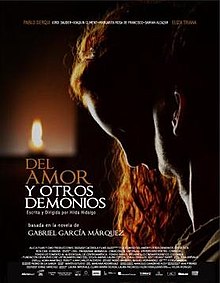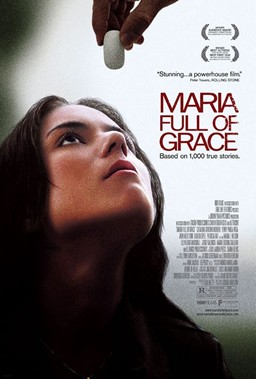
Maria Full of Grace is a 2004 Spanish-language drama film written and directed by Joshua Marston. The film was a US-Colombia co-production. The story follows a Colombian girl who becomes a drug mule for a trafficking ring. Lead actress Catalina Sandino Moreno won Best Actress at the Berlin Film Festival, and was nominated for the Academy Award for Best Actress in the 77th Academy Awards.

Piel de otoño is a Mexican telenovela produced by Mapat L. de Zatarain for Televisa in 2005. Is a remake of the 1986 Mexican telenovela Cicatrices del alma.
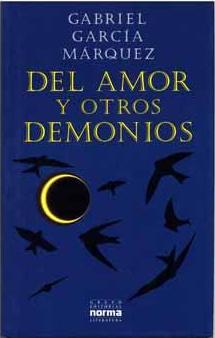
Of Love and Other Demons is a novel by Colombian writer Gabriel García Márquez published in 1994. Set in 18th-century Colombia, the plot follows a 12-year-old girl, bitten by a rabid dog; she is believed to be possessed by demons, and is sent to a convent to be exorcised; the priest who is meant to exorcise her falls in love with her. The book received positive reviews.
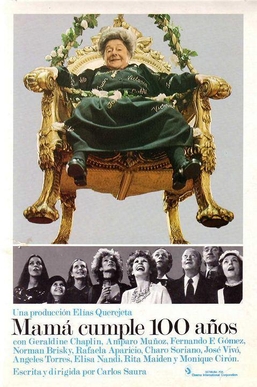
Mama Turns 100 is a 1979 Spanish comedy film written and directed by Carlos Saura. The film is a comedy sequel of the drama Ana and the Wolves directed by Saura in 1973. It was nominated for the Academy Award for Best Foreign Language Film at the 52nd Academy Awards.
The Other Side of Sunday is a 1996 Norwegian film directed by Berit Nesheim, starring Marie Theisen and Bjørn Sundquist. The film was the most-viewed film in Norway in 1996 and was nominated for an Academy Award for Best Foreign Language Film in 1997.

Oriana is a 1985 Venezuelan film directed by Fina Torres and written by Antoine Lacomblez and Torres herself. Set in a hacienda or ranch, this drama tells the story of Maria, a woman who returns to the house where she spent a short time as a girl to discover some secrets about her aunt, the title character, who died and left the property to her.
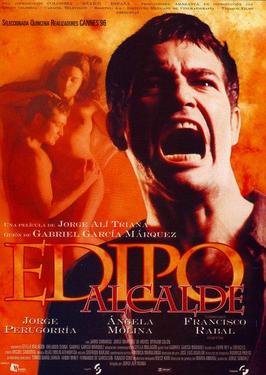
Oedipus Mayor is a 1996 Colombian tragedy film, produced by Tomás Zapata and Jorge Sánchez, directed by Jorge Alí Triana. Set in strife-ridden, 20th-century Colombia, the film is a modern-day interpretation of Sophocles' classical Greek tragedy Oedipus Rex. The film was selected as the Colombian entry for the Best Foreign Language Film at the 69th Academy Awards, but was not accepted as a nominee.

Love and Other Demons is an opera in two acts by Hungarian composer Péter Eötvös to a libretto by the Hungarian author Kornél Hamvai. It premiered on 10 August 2008 at the Glyndebourne Festival. The libretto is based on the novel Of Love and Other Demons (1994) by Gabriel García Márquez. The opera is the result of a commission by Glyndebourne and the BBC; it was broadcast in full on BBC Radio 3 on Saturday, 11 October 2008.
Rabies has been the main plot device or a significant theme in many fictional works. Due to the long history of the virus as well as its neurotropic nature, rabies has been a potent symbol of madness, irrationalism, or an unstoppable plague in numerous fictional works, in many genres. Many notable examples are listed below.

If I Want to Whistle, I Whistle is a 2010 Romanian drama film directed by Florin Șerban.
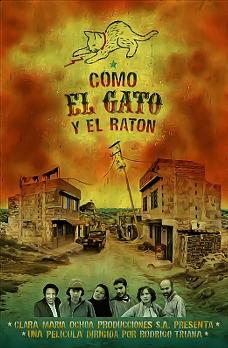
Como el gato y el ratón is a 2002 French-Colombian comedy-drama film. It was directed by Rodrigo Triana, produced by Colombian filmmaker Clara María Ochoa, and stars Jairo Camargo, Alina Lozano, Patricia Maldonado, Gilberto Ramirez, Paola Rey and Manuel Jose Chavez.

Illegal is a 2010 Belgian drama film directed by Olivier Masset-Depasse. The film was selected as the Belgian entry for the Best Foreign Language Film at the 83rd Academy Awards, but it did not make the final shortlist. The film received eight nominations at the 1st Magritte Awards, winning Best Actress for Anne Coesens and Best Supporting Actress for Christelle Cornil. The film is critical of practices of Belgian immigration officers.

The Life of Fish is a 2010 Chilean drama film directed by Matías Bize. The film was selected as the Chilean entry for the Best Foreign Language Film at the 83rd Academy Awards, but didn't make the final shortlist.

Confessions is a 2010 Japanese psychological thriller film directed by Tetsuya Nakashima and based on author Kanae Minato's 2008 debut mystery novel, which won the 2009 Honya Taisho award. Starred by Takako Matsu as Yuko, a junior high-school teacher who's trying to solve the death of her daughter under mysterious circumstances.

La Yuma is a 2009 Nicaraguan drama film directed by Florence Jaugey. The film was selected as the Nicaraguan entry for the Best Foreign Language Film at the 83rd Academy Awards, but did not make the final shortlist.

Life, Above All is a 2010 South African drama film directed by Oliver Schmitz. It was screened in the Un Certain Regard section of the 2010 Cannes Film Festival. The film was selected as the South African entry for the Best Foreign Language Film at the 83rd Academy Awards and made the final shortlist announced in January 2011. The film was adapted from the 2004 novel Chanda's Secrets by Allan Stratton.

Simple Simon is a 2010 Swedish comedy film directed by Andreas Öhman. The film was selected as the official Swedish entry for the Best Foreign Language Film at the 83rd Academy Awards. It made it to the penultimate round of nominations and competed with eight other films.

A Time to Die, also called Time to Die, is a 1985 Colombian drama film directed by Jorge Alí Triana and starring Gustavo Angarita, María Eugenia Dávila and Sebastián Ospina. The script, written by Colombia's Nobel Prize-winning author Gabriel García Márquez, had been shot twice before, first in 1965 by Mexican director, Arturo Ripstein and in 1982 also by Jorge Alí Triana as a TV series produced by RTI Producciones.
